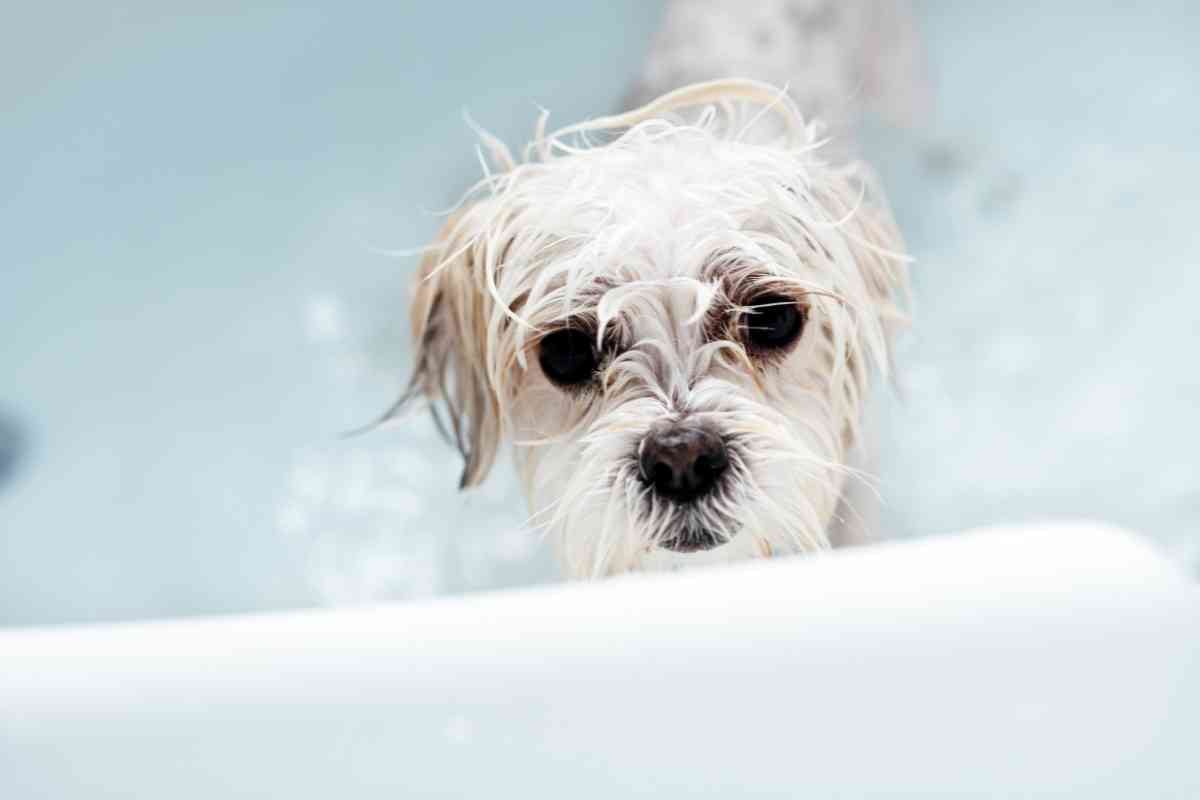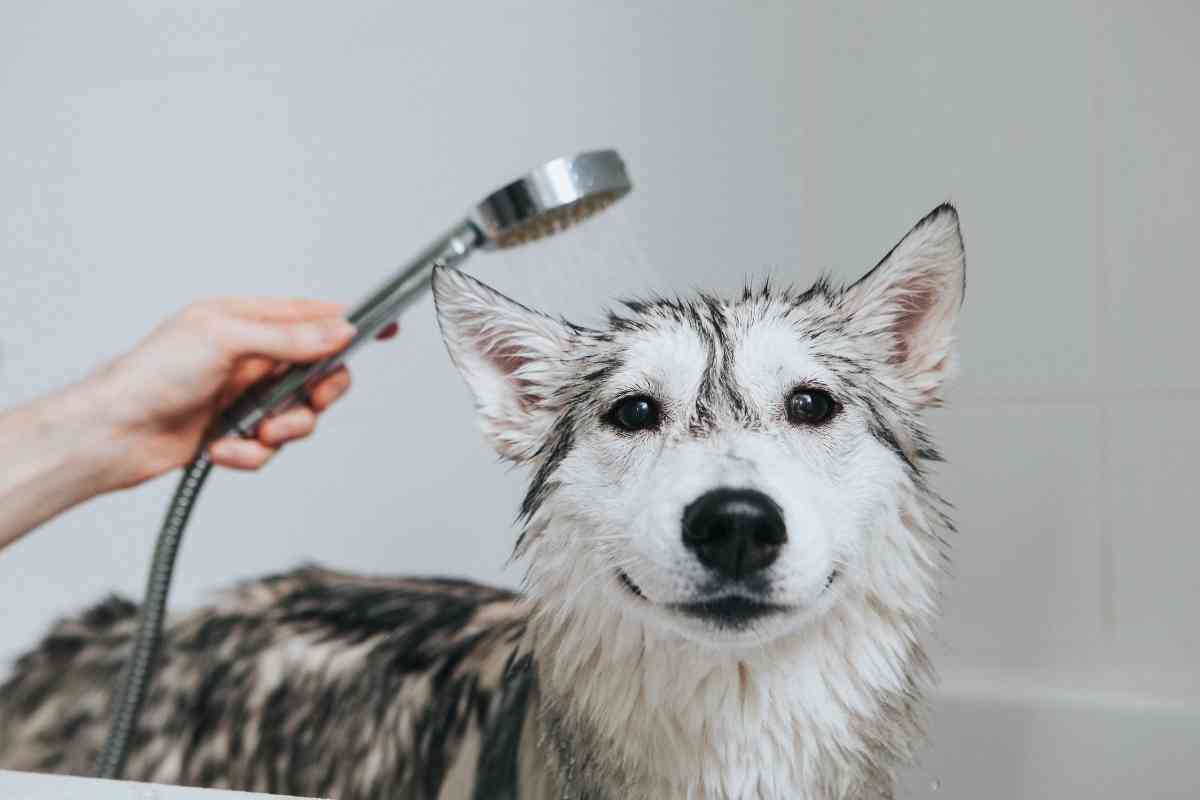7 Reasons Your Puppy Shakes After A Bath & How To Help Them
Is your puppy shivering after a bath? Are you feeling concerned and want to find a suitable solution? It’s not uncommon for puppies to shiver after a bath. This matter is a cause of concern for many pet parents. Why is my pup shivering after taking a bath?

Why does my puppy shake after a bath?
There are different reasons why puppies shake and shiver after a bath. At the top of the list is young age because of the thin coat. In addition, they can feel anxious or excited after the bath. If the room temperature is low and the environment challenging, you start to notice your puppy shivering.
It’s always concerning when you notice a puppy shivering. The best thing to do at this time is to note the cause. After noting why your puppy is shivering, you can proceed to make them comfortable. The good news is that helpful tips make bath time a much better experience.
Bathing a puppy can be a fun and bonding experience for pet parents. All you need to do is watch how they behave after bath time. This gives you a better chance at resolving problems and turning bath time into a fun experience.
Why Is My Puppy Shaking After a Bath?
After a bath, a puppy can shiver because of incorrect water temperature. In addition, they can shiver because the ambient temperature isn’t right. Other reasons why your puppy shivers after a bath are excitement or fear.
It’s not uncommon for your puppy to shiver after you finish giving them a well-deserved bath. If you notice such behavior, take immediate action to get them comfortable. Here are different reasons why puppies shake after a bath.
Age
Puppies are young and yet to develop a thick coat that protects them. Therefore, one reason they can shiver after a bath is at a young age. Remember, baths are important for all dogs when they’re small. But, it takes time for them to get used to frequent baths.
Young age is one reason why puppies shiver because they get cold easily. The more exposed they are, the worse the shivers. You can even see your puppy tremble at some point because they feel chilly.
As your puppy continues to lose the puppy coat, they can enjoy baths and not shiver as much. It takes about 6 months for them to shed the coat and grow a more protective layer.
Therefore, always consider the thin coat when bathing your puppy. Perhaps make the room warmer so they can feel warm after leaving the bath.

Bath Temperature
Check the bath temperature before you bathe a puppy at home. Puppies have a thin protective layer that can’t withstand extremities. This is why it’s crucial to ensure the bath water is right for them. The water needs to be warm, not too hot or too cold.
Start by adding water to the bath before you bring your puppy into the room. This gives you time to test the water temperature and adjust it to suit your puppy. Avoid making your puppy stand in the bath while you fill it with water, as this can cause them stress.
Always consider the ambient temperature of the room when checking the bath water. A warm room plus warm water will suit your puppy. That way, the body temperature is right after the bath, and they won’t shiver.
Consider raising the bathroom temperature to a comfortable level for your puppy in winter. Bathrooms tend to get quite chilly, so creating a perfect ambient temperature for your puppy is crucial. Also, pick the right time to bathe your puppy. If possible, avoid late-night baths when the air gets chilly.
Anxious Puppy
Anxiety can cause your puppy to shiver after giving them a puppy. This is especially common when your puppy is new to your environment. First baths are always nerve-wracking and can cause your puppy to shiver because they feel anxious.
This is why it’s important to start bathing your dog early. It gets easier to reassure them as a puppy than it is as an adult. And, it’s not uncommon for your puppy to loathe baths and want to take off at the first sign of bath-time.
Dogs are big fans of bath-time and will jump up and down with joy. On the other hand, some dogs detest water and everything about baths. This is easy to see as you continue giving your puppy baths at home.
Always consider introducing them to the bath gently and avoid showers. The sudden water from the shower can cause your dog to be anxious and start shivering. A gentle and calming bath is a better alternative and less stressful work for you.
Happy Puppy
Some puppies love baths and want to be in the water longer. You can see this desire for a bath by how excited they get when you announce bath time.
While taking a bath, your puppy feels wonderful and splashes around in the water. The issue is when you have to take them out and start the drying process. Puppies can shiver because of the excitement and desire to get back in the bath.
If you don’t keep an eye on them, they can skip your grip and rush back inside. Even puppies get the zoomies if you put them under a shower. The jumping up and down with joy grows into shivering.
Low Room Temperature
After moving from the bath water, it’s quite common to proceed to another room to dry your puppy. Your puppy will shiver if the room temperature is lower than in the bathroom.
Puppies have a thin protective layer that keeps them comfortable. Bath time can impact the body’s temperature, which takes time to balance. This is why it’s essential to prepare both the bathroom and the drying room.
When you head off to take a bath, turn up the thermostat in the drying room. Your puppy will find this space just as warm as the water. This is a great way to keep the shivers away each time you bathe your puppy.
Challenging Environment
Where do you bathe your puppy? Are there other dogs around or kids making lots of noise? Stressful environments can make your puppy shiver after a bath. Having kids or other dogs, especially bigger ones, makes your puppy feel stressed.
Some puppies love having company when taking a bath. They can even refuse to settle until their favorite person is in the room. But, if you notice your dog shiver when people or other pets are around, make bath time private.
Puppy is Sick
A sick puppy needs lots of extra love and care as they recover. You might not notice on time that the puppy isn’t feeling well. Your puppy starts shivering after exiting the water when you give them a bath. This is a sign they’re unwell, especially if your puppy is usually full of energy after a bath.
Moreover, a sick puppy can shiver after a bath even when you know they’re sick. Giving them a bath is important to prevent dirt and germ accumulation. Also, some puppies soil themselves, which can lead to more complications.
A bath helps an ailing puppy relax and feel better once clean. But, you must act fast to get them dry and comfortable once out of the water. If left to feel cold and shiver for some time, your puppy might feel worse.
Be sure to speak with your veterinarian if this behavior persists. Vets are best suited to help identify an issue with your dogs nerves or even an infection that could cause tremors that look like a normal dog shake.